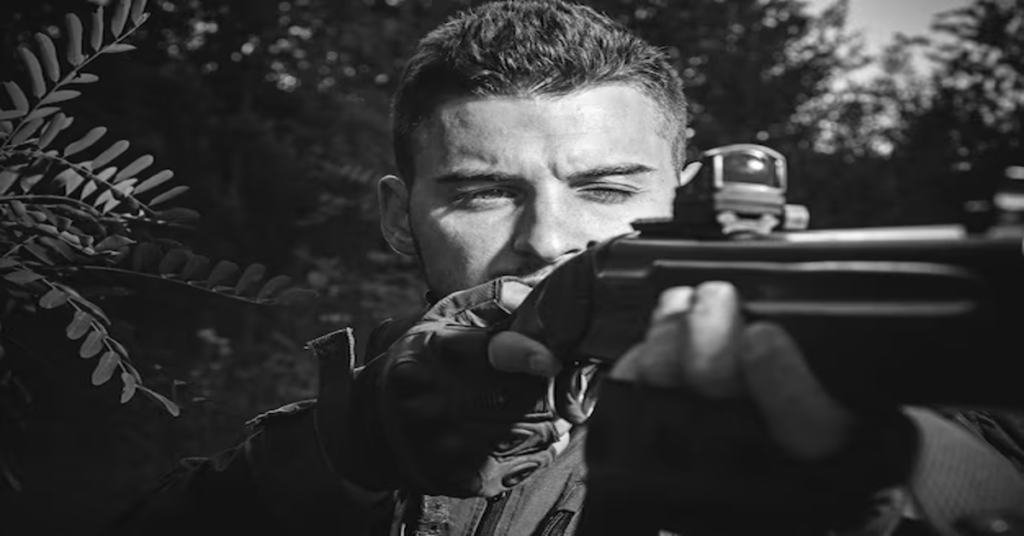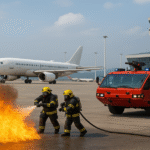Shooting sports have been a part of human culture for centuries, offering both recreational enjoyment and competitive opportunities. Whether you are an experienced marksman or just starting to explore the world of shooting, one term that often comes up is “true shooter.” But what exactly does this phrase mean, and what qualities define a true shooter?
A true shooter, in essence, is someone who has mastered the art of shooting with precision and skill, regardless of the type of firearm they use or the environment in which they shoot. They display a deep understanding of shooting techniques, safety, equipment, and mental focus. However, achieving this level of proficiency doesn’t come overnight. It takes time, dedication, and continuous learning.
In this article, we will explore what it means to be a true shooter, the essential traits and skills involved, and how you can develop your own shooting abilities. Additionally, we will cover various aspects of shooting, including different types of shooting sports, safety protocols, and tips for improving your skills.
What is a True Shooter?
A true shooter refers to someone who consistently demonstrates exceptional accuracy, control, and technique when handling firearms. They are not only skilled in hitting their target, but they also possess a strong understanding of the equipment, the environment, and their own mental and physical state. Being a true shooter is about more than just hitting the bullseye; it’s about mastering the fundamentals and continually improving one’s shooting abilities.
To become a true shooter, individuals need to combine several elements:
- Technical proficiency: The ability to use different types of firearms effectively.
- Mental focus: The ability to maintain concentration, block distractions, and stay calm under pressure.
- Physical conditioning: The strength, endurance, and stability needed to shoot accurately and consistently.
- Knowledge of safety protocols: Understanding the rules and regulations surrounding firearm use and handling.
The development of a true shooter’s skills involves years of practice and an ongoing commitment to improvement. With each training session, a shooter learns more about themselves and their equipment, gradually refining their technique to achieve a higher level of performance.
Key Skills of a True Shooter
Becoming a true shooter requires a broad set of skills, each of which contributes to success in shooting sports. Let’s break down some of the key skills that define a true shooter:
1. Accuracy and Precision
At the core of shooting is the ability to hit the target accurately. A true shooter demonstrates exceptional control over their firearm, consistently hitting targets within the desired area. This involves controlling factors such as trigger pull, breathing, and stance. Precision shooting involves mastering these details and being able to replicate the same shot consistently, even under changing conditions.
2. Understanding of Firearm Mechanics
A true shooter has an in-depth knowledge of the mechanics and function of their firearm. This knowledge includes understanding how different firearms operate, how to maintain them, and how to optimize their performance. Whether using handguns, rifles, or shotguns, a true shooter knows how to handle, load, and unload the firearm safely and effectively. Proper maintenance is also crucial, as it ensures the firearm operates at its best.
3. Breathing and Trigger Control
One of the most challenging aspects of shooting is maintaining control over one’s breathing and trigger pull. A true shooter knows how to regulate their breathing so that they are calm and steady when taking a shot. They also understand how to pull the trigger smoothly without jerking or flinching, which could affect the shot’s accuracy. Breathing control is vital for long-range shooting, while proper trigger control is essential for quick, precise shots.
4. Mental Focus and Discipline
Shooting requires exceptional mental discipline and focus. A true shooter must block out distractions, maintain a steady state of mind, and stay calm in high-pressure situations. This mental toughness helps shooters remain composed during competitive events or self-defense scenarios. Mental preparation is just as important as physical training in becoming a skilled shooter.
5. Situational Awareness
A true shooter must possess strong situational awareness, which involves being aware of their surroundings, the target, and potential hazards. In competitive shooting, situational awareness helps shooters anticipate changes in the environment, such as wind speed, lighting conditions, or terrain. This skill is also vital in tactical shooting scenarios, where quick decision-making is often required.
6. Physical Conditioning
While shooting may not seem physically demanding, it requires a significant level of physical conditioning. True shooters need to have good hand-eye coordination, steady hands, and core strength. Additionally, endurance is important for long shooting sessions or events that require multiple rounds of shooting. Physical conditioning can help shooters maintain consistency and reduce fatigue.
Types of Shooting Sports
Shooting sports come in many different forms, each with its own set of rules and challenges. Whether you’re interested in competitive sports or recreational shooting, there are several types of shooting disciplines to explore.
1. Target Shooting
Target shooting is one of the most common and accessible forms of shooting sports. It involves shooting at stationary targets, often from a fixed distance. There are several variations of target shooting, including:
- Pistol shooting: Shooting with a handgun at targets, either indoors or outdoors.
- Rifle shooting: Shooting with a rifle, usually at longer distances, and requiring higher levels of precision.
- Shotgun shooting: Shooting at moving clay targets (skeet shooting) or live targets (trap shooting).
Target shooting is often practiced in indoor or outdoor ranges, where shooters can focus on improving their accuracy and consistency.
2. Sporting Clays
Sporting clays, often referred to as “golf with a shotgun,” is a form of shooting where participants fire at moving clay targets that simulate the flight patterns of game birds. It’s an excellent test of shooting skills, as the targets vary in speed and direction. Sporting clays require excellent hand-eye coordination, timing, and the ability to track fast-moving targets.
3. 3-Gun Competitions
3-gun competitions combine rifle, shotgun, and pistol shooting, making it a dynamic and challenging sport. Participants engage in various stages that simulate real-life scenarios, requiring shooters to switch between different firearms depending on the situation. These events test a shooter’s versatility, speed, and decision-making ability under pressure.
4. Trap and Skeet Shooting
Trap and skeet shooting are both disciplines that involve shooting at moving clay targets. In trap shooting, the targets are launched from a single “trap” house, while in skeet shooting, targets are launched from two houses at different angles. Both sports are highly popular at the amateur and professional levels and require excellent reflexes and shooting accuracy.
5. Precision Rifle Series
Precision rifle shooting is a sport that tests a shooter’s ability to engage targets at long distances, often over several hundred meters. This discipline emphasizes accuracy, range estimation, and shooting under various environmental conditions. Precision rifle series competitions involve shooting from various positions and distances, with both stationary and moving targets.
Shooting Safety and Protocols
Safety is of paramount importance in shooting sports. A true shooter must always follow proper safety protocols to ensure the well-being of themselves and others. The following are essential safety rules that every shooter should follow:
- Always point the firearm in a safe direction: This is the fundamental rule of firearm safety. The muzzle should always be pointed away from people and towards a safe area.
- Keep your finger off the trigger: Until you are ready to shoot, keep your finger off the trigger and outside the trigger guard.
- Treat every firearm as if it’s loaded: Even if you believe a firearm is unloaded, always handle it with care and assume it’s loaded.
- Wear proper safety gear: Always wear ear protection to prevent hearing damage and eye protection to avoid potential injury from debris.
- Follow all local laws and regulations: Ensure that you are shooting in a designated area and adhering to all local firearm regulations.
- Check your equipment: Before every session, inspect your firearm, ammunition, and safety gear to ensure everything is in good working order.
How to Become a True Shooter: Tips for Improving Your Skills
If you are looking to become a true shooter, here are several tips that can help improve your skills:
- Practice regularly: Consistent practice is key to improving your shooting abilities. Whether you are practicing on a range or in a controlled environment, make sure you dedicate time to practice different shooting techniques.
- Get professional training: Enroll in shooting courses or hire an instructor who can provide expert feedback on your technique. Professional training will help you avoid bad habits and accelerate your progress.
- Analyze your performance: Keep track of your shooting performance, including your accuracy, shot grouping, and mental focus. Analyzing your results can help you identify areas for improvement.
- Stay fit: Physical conditioning is important for maintaining control over your firearm and staying steady during long shooting sessions. Engage in regular exercise, focusing on core strength and hand-eye coordination.
- Focus on safety: Always prioritize safety in your training. Practice safe handling of firearms and develop a strong understanding of safety protocols.
- Mentally prepare: Shooting is as much a mental sport as it is physical. Train your mind to remain calm, focused, and disciplined during your sessions and competitions.
Conclusion
Being a true shooter is about more than just firing a weapon with precision. It involves mastering a set of skills, both mental and physical, and developing a deep understanding of your equipment, the shooting environment, and yourself. With dedication, practice, and continuous learning, you can achieve the level of proficiency required to be a true shooter. Whether you participate in competitive shooting sports or enjoy shooting for recreation, the journey to becoming a true shooter is both rewarding and challenging.
Frequently Asked Questions (FAQs)
- What makes someone a “true shooter”? A true shooter is someone who has mastered the fundamentals of shooting, demonstrating precision, control, and a deep understanding of their firearm. They consistently hit their targets and exhibit strong mental focus, discipline, and safety awareness.
- How can I improve my shooting accuracy? To improve your accuracy, practice regularly, focus on your breathing and trigger control, maintain a proper shooting stance, and analyze your performance to identify areas for improvement. Consider professional coaching for more personalized guidance.
- What are the most popular types of shooting sports? Some of the most popular shooting sports include target shooting, sporting clays, 3-gun competitions, trap and skeet shooting, and precision rifle series. Each sport has its own set of challenges and is suitable for different types of shooters.
- Is physical fitness important for shooting? Yes, physical fitness is important for shooting, as it helps with stability, endurance, and hand-eye coordination. Strengthening your core and maintaining physical conditioning can improve your accuracy and consistency.
- What safety precautions should I take when shooting? Always point the firearm in a safe direction, keep your finger off the trigger until ready to shoot, treat every firearm as if it’s loaded, wear proper safety gear, and follow all local laws and regulations.
- How can I get started with shooting sports? To get started with shooting sports, consider taking a safety course, visiting a local range, and practicing with different types of firearms. Seek guidance from experienced shooters or instructors to develop your skills safely.







